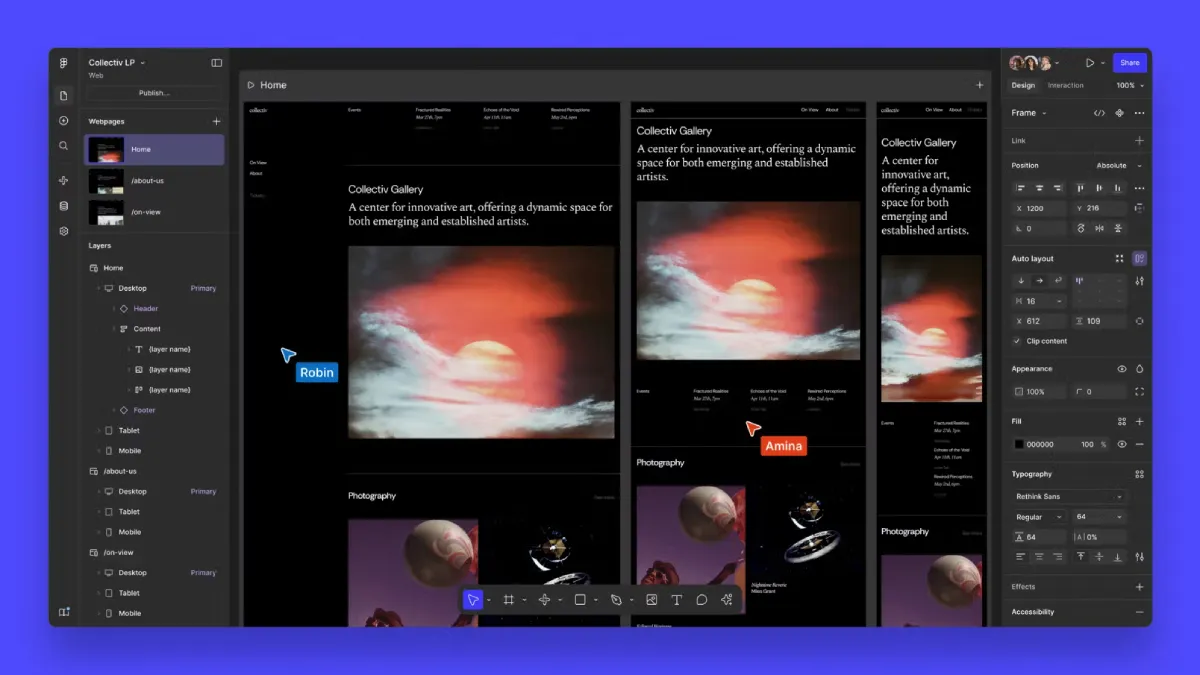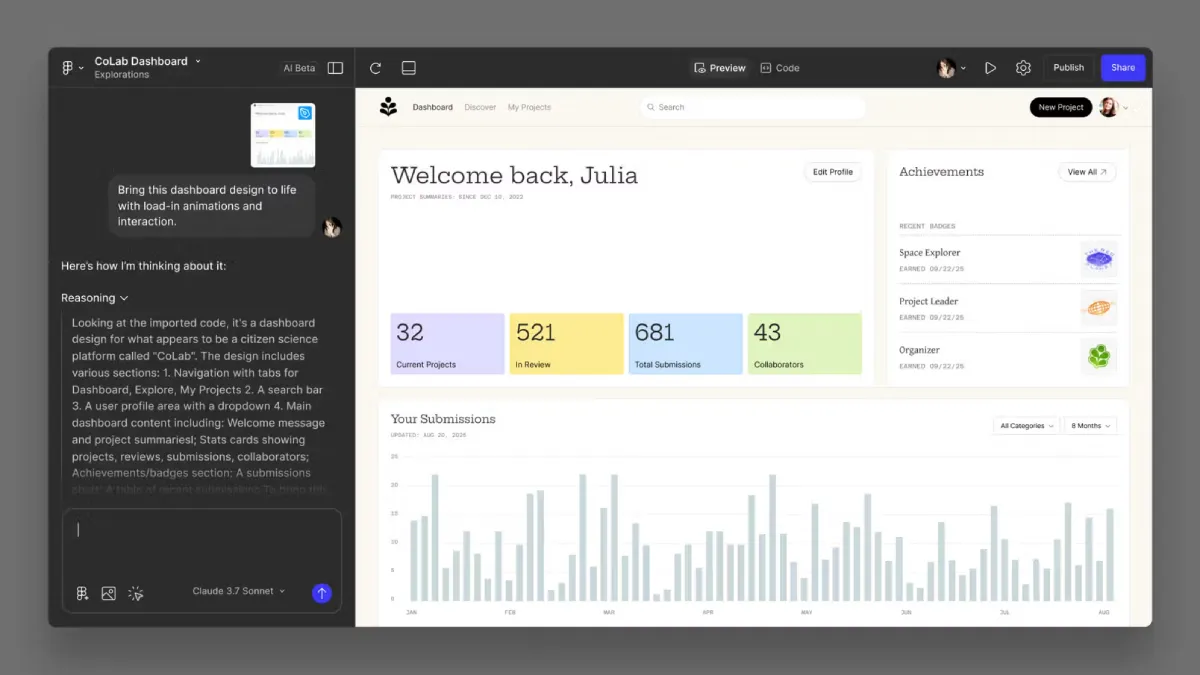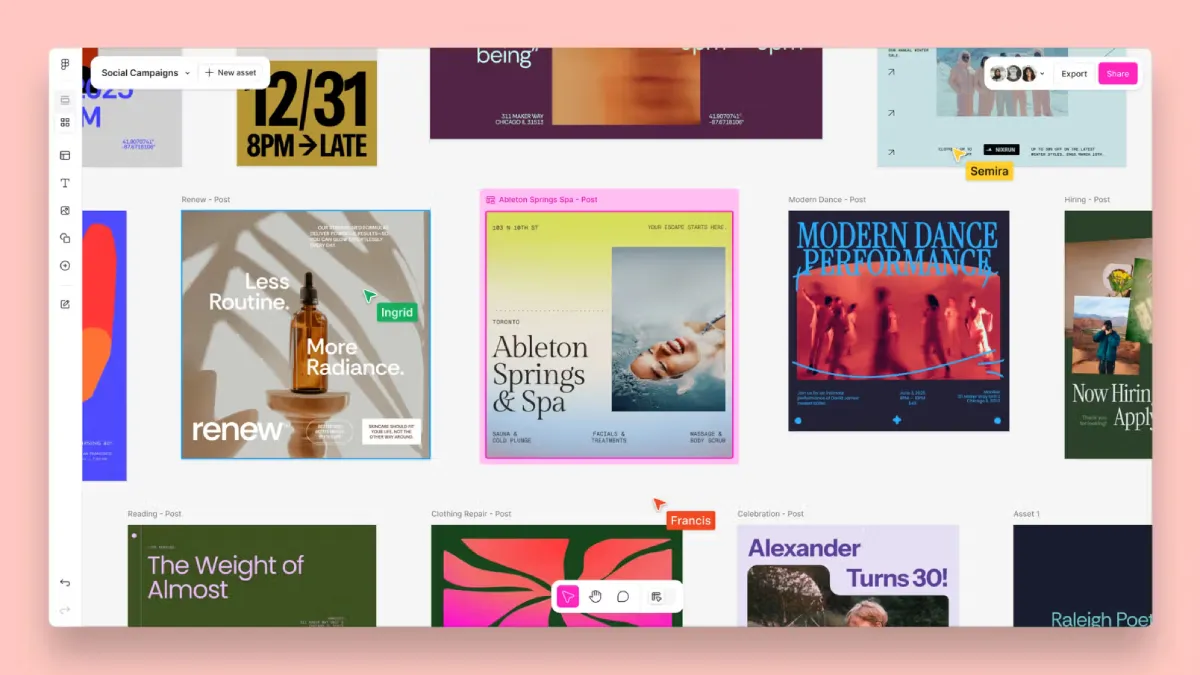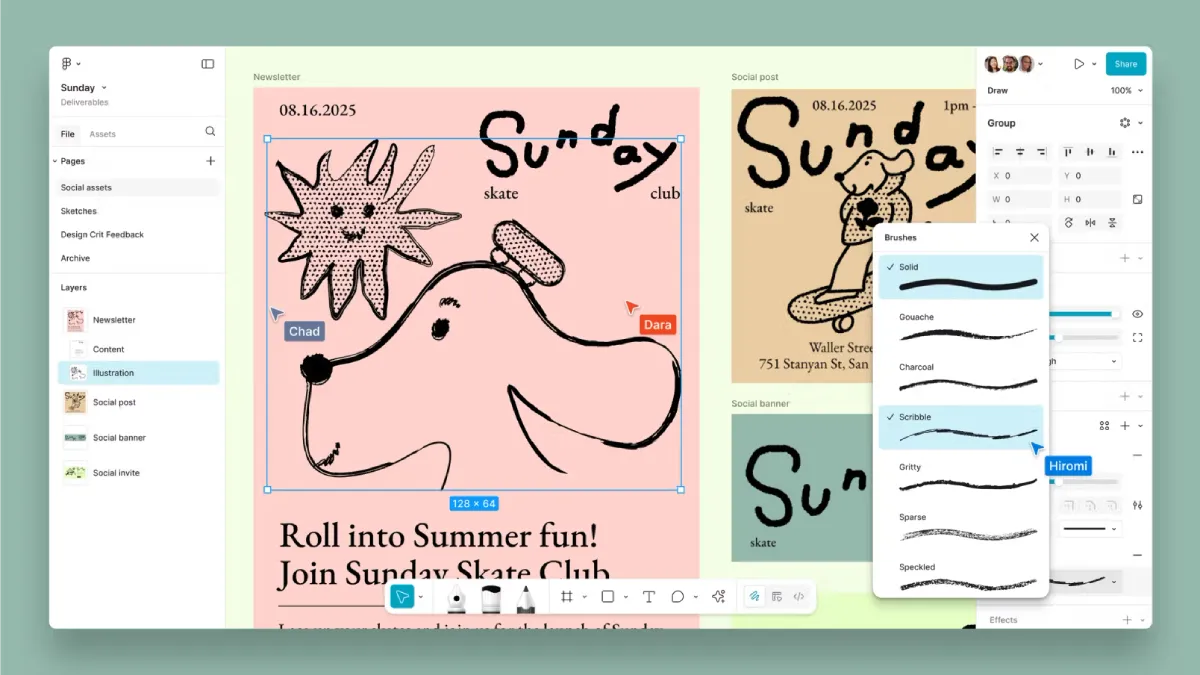Figma’s AI update challenges Adobe, WordPress, and Canva

Design platform Figma has unveiled a major product expansion aimed at transforming how teams create websites, applications, and marketing content. With new AI-powered tools—Figma Sites, Figma Make, Figma Buzz, and Figma Draw—the company is positioning itself as a serious competitor to Canva, Adobe, and AI-driven website builders like Wix, WordPress, and Replit.
Figma Sites: From Prototypes to Live Websites
Figma Sites is a new tool that lets designers and marketers generate fully functional websites directly from prototypes, using AI to speed up the creation process. Users can:
- Add animations, scroll effects, and responsive elements
- Edit websites collaboratively without coding
- Use a built-in CMS (Content Management System) to generate and manage blog posts, thumbnails, and metadata
- Add interactive features via custom or AI-generated code
This positions Figma Sites as a direct challenge to traditional CMS platforms and drag-and-drop website builders.

Figma Make: AI for App Prototyping
Aimed at product teams and developers, Figma Make enables users to generate web application prototypes by inputting simple prompts. The AI can:
- Generate UI layouts and logic
- Accept changes via conversational instructions
- Allow developers to modify code directly within the platform
Elements created in Figma Make, such as clocks or counters, can be embedded into live websites created in Figma Sites.

Figma Buzz: Bulk Content Creation for Marketers
With Figma Buzz, marketers can scale content creation using:
- Designer-built templates customized to brand guidelines
- AI tools for generating and editing visuals
- Bulk asset generation using data sources like spreadsheets
This tool streamlines repetitive tasks and bridges the gap between creative and marketing teams.

Figma Draw: Advanced Vector Editing Inside Figma
Previously, designers had to export vector designs to other tools for fine-tuning. Now, Figma Draw adds features like:
- Brushes, pattern fills, text on paths
- Multi-vector editing, noise, and texture effects
- Lasso selection for complex illustrations
These additions give designers more control without leaving the Figma ecosystem.

Focused on Product, Not Just Design
Figma’s Chief Product Officer, Yuhki Yamashita, emphasized the distinction between Figma and traditional design platforms. While Adobe and Canva focus heavily on graphic and marketing design, Figma aims to serve teams building digital products—with over a third of its users being developers.
The company is also introducing a new "content seat" plan starting at $8/month, which includes access to Figma Buzz, Slides, FigJam, and the new CMS capabilities in Sites.
The Bigger Picture
Figma’s expansion reflects a larger trend in design and development: AI is breaking down barriers between design, code, and content. As companies race to create interactive, data-driven experiences faster and more efficiently, Figma is betting that tightly integrated, collaborative AI tools will define the next era of digital product creation.





